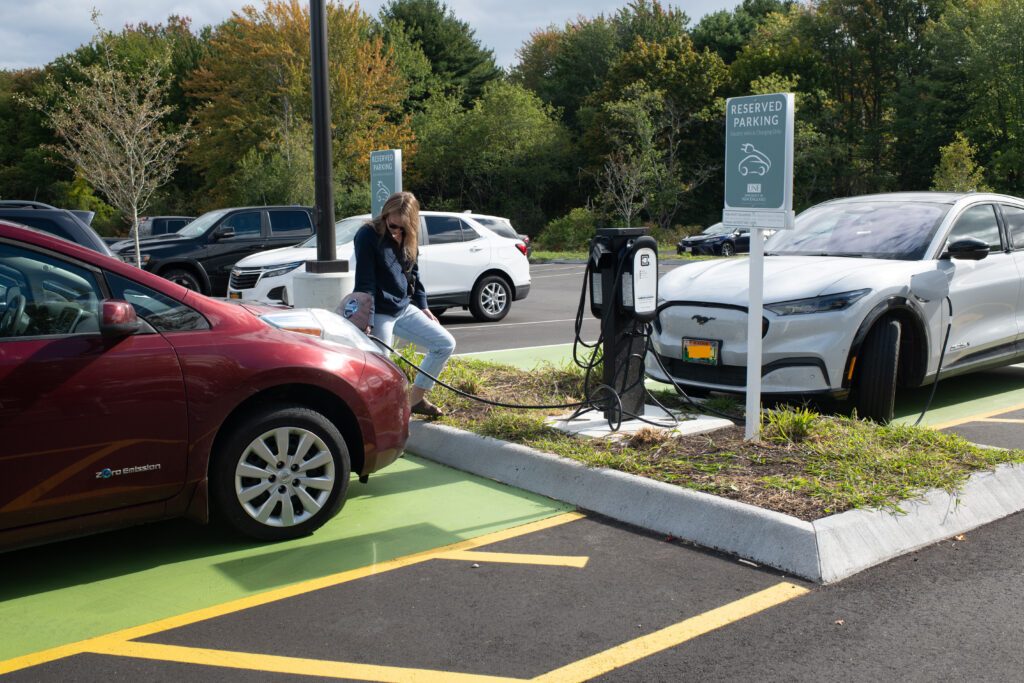UNE’s Environmental Council successfully advocated for the first electric vehicle charging stations in 2015. In the eight years since, there has been a steady proliferation of additional chargers installed. UNE started by offering two Level 2 chargers in the Alfond Forum parking lot on the Biddeford Campus and two Level 2 chargers behind the warming shelter in the Bishop Street parking lot on the Portland Campus. The program has expanded to include Level 2 chargers behind the Campus Center, at the Alumni Cottage, and in the Campus Center parking lot, for a total of eight chargers on the Biddeford Campus. On the Portland Campus, the charging census has grown by one additional charger in the Bishop Street lot, but also includes five slow charging exterior outlets on the campus proper near Ginn, Abplanalp and Alexander Halls.
While Environmental Council was the first advocate for EV chargers, the increasing demand from EV owners has spurred the growth of the program. There are currently 32 people on the Biddeford Campus registered with the Sustainability Office to use the chargers, five of which are students. There are 12 people on the Portland Campus registered in the program, and another five people that are routinely on both campuses. The Transportation Survey that was distributed in October 2022, tried to gage the intentions of our community members to adopt an EV in the near future. 28% of the 485 respondents said they are either somewhat or extremely likely to purchase an EV in the next three years. This represents 135 people who will be looking to plug in at school and work – more than our current program can accommodate.
So what does the future hold for the EV program at UNE? The Campus Center parking lot was reconstructed last summer and EV infrastructure was included in the redesign. Conduit for cables was run underground to all the islands so that pavement would not need to be disturbed to add chargers. This will likely be the location for most additional charging stations on the Biddeford Campus. The plans for the new Harold and Bibby Alfond Center for Health Sciences on the Portland Campus include electrification of the parking lot. There will be five Level 2 chargers, and 13 outlets at light poles that can be used for slow charging. Future renovations to the Bishop Street intermodal facility will include further charging stations as well. Incentives have been proven to foster adoption of sustainable behaviors and technology, and the EV charging program at UNE has followed this best practice. There have been no costs charged to faculty, staff, and students to charge their cars on campus for the past eight years. However, it is unrealistic to expect that practice to continue as more and more people turn to electric cars to commute to work and school. The Transportation Committee and Sustainability Office are proposing a modest cost for EV owners in future years. With the economy and industry trends leading us toward further electrification of our transportation system, there is little doubt that removing the incentive of free charging will not become a barrier to adoption. It’s exciting to think that in eight years the university went from leading the way with incentivizing EV adoption, to welcoming the mainstream use of this sustainable technology.


